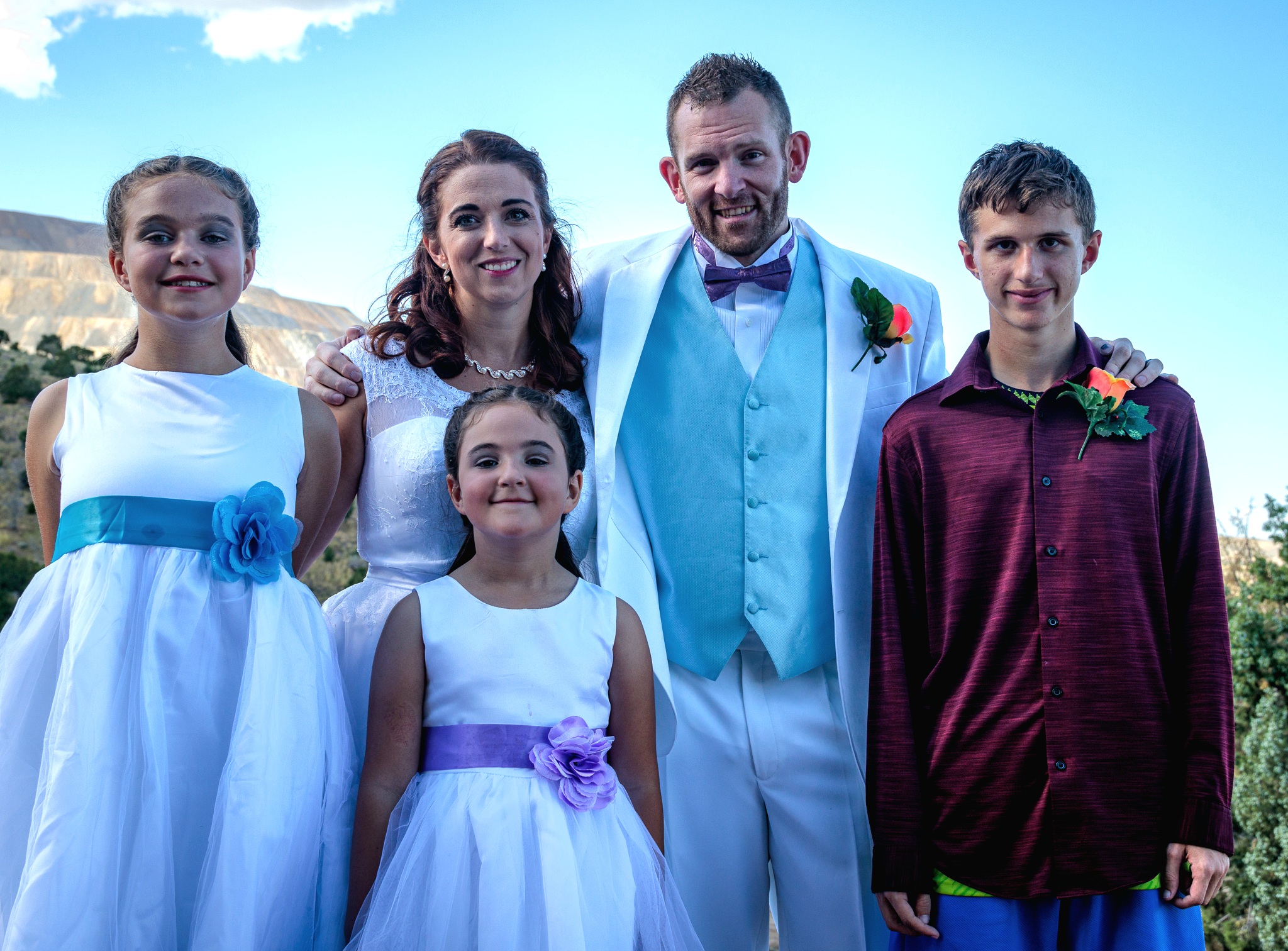
Amanda hopes her cancer journey is a positive example for her kids
April 22, 2024
This is a guest post by Amanda Reitz, a mother of three children who were 13, 9, and 5 years…
Read More
By D’Ann George, PhD, Medical Writer
We rounded up a few research highlights from the 2023 ASCO Genitourinary Cancers Symposium (ASCO GU), held recently in San Francisco, California.
Kidney cancer guidelines updates
Dr. Shuchi Gulati of the University of California Davis Comprehensive Cancer Center, summarized major recent changes in kidney cancer care guidelines, primarily from the 2023 National Comprehensive Cancer Center’s guidelines.
Everyone with renal cell carcinoma (RCC) who is metastatic with tumors that have spread outside the kidney can be divided into two groups for treatment purposes: those who have already received immunotherapy and those who have not. This distinction is important because a person’s treatment history guides future selection of therapies.
People with clear cell RCC (ccRCC) may now consider the immunotherapy pembrolizumab as a follow-up treatment option after complete surgical removal of cancer either by nephrectomy to remove all or part of the kidney or metastatecomy to remove tumors that have spread outside the kidney. If used, pembrolizumab is recommended for the first year after metastatecomy as long as there is no evidence of tumors. Pembrolizumab is not recommended for non-ccRCC.
For patients who have not yet received systemic therapy, treatment with one drug (single-agent treatment), either axitinib, cabozantinib, or nivolumab, is no longer preferred compared with combination therapy with two or more drugs. However, single-agent treatment is still an option, especially for patients who cannot tolerate combination therapy.
For patients who have previously received systemic therapy for metastatic disease and then relapsed, there is less compelling clinical trial data to distinguish between the relative value of subsequent treatment options.Clinical trials are ongoing to address this need.
In the meantime, the VEGF-TKI inhibitor tivozanib is now a preferred option for those who have already received two prior rounds of systemic therapy. VEGF-TKI inhibitors slow blood vessel growth around the tumor and tivozanib was designed to minimize binding to molecules other than those targeted. Binding to these unintended targets causes some of the side effects often experienced with other, less selective TKIs like cabozantinib.
Belzutifan, as an HIF-2 alpha inhibitor (a small molecule that retards tumor growth in several ways), represents a new class of recommended treatment options for people who have had multiple therapies, regardless of the type of treatment they have already recieved.
Treatment guidelines for papillary kidney cancer, a rare subtype of kidney cancer, now include, for the first time, cabozantinib and a combination of nivolumab plus cabozantinib.
To further refine these treatment guidelines, Gulati said, the field needs biomarkers to identify which patients will likely benefit from a particular treatment as well as which treatments will lead to overall survival.
Choosing a second-line therapy after kidney cancer recurs
Selecting a second-line kidney cancer therapy depends on what the initial therapy was. Dr. Tian Zhang, a medical oncologist at UT Southwestern Medical Center, reported on the current professional consensus for treatment choices in refractory RCC, in which people relapse after receiving an initial therapy for their metastatic disease during the 2023 ASCO GU meeting.
If someone were treated with a VEGF-TKI like cabozantinib initially, then many oncologists would follow with a combination of cabozantinib plus the immunotherapy nivolumab. If someone received an ipilimumab plus nivolumab immunotherapy combination as a first-line treatment, the recommendation would be to follow with a VEGF-TKI inhibitor in the case of relapse. If a combination of VEFG-TKI + immunotherapy treatment was used in the front line, oncology leaders typically recommend an alternative VEGF-TKI. Results from four different phase II trials demonstrated that ipilimumab is not indicated (should not be recommended) as a second line therapy.
How long someone experiences stable disease before their cancer starts growing again should also influence selection of second-line therapy. Ongoing phase III clinical trials (trials in their final stage before completion) should provide further guidance.
Zhang noted that a small, published trial of people receiving the immunotherapy combination of lenvatinib plus pembrolizumab as a second-line treatment resulted in the vast majority of patients having stable disease or better, though there were no complete responders – people who have no detectable tumors. Stable disease in refractory RCC is “a win for our patients,” Zhang said.
Active surveillance for people with small kidney tumors
Dr. Marshall Strother, a GU urologist at Oregon Health and Science University, discussed the relative risks and benefits of nephrectomy (having all or part of the kidney surgically removed) versus active surveillance (undergoing regular imaging to monitor tumor growth) for small kidney tumors. When making the decision to recommend nephrectomy, he consults a professional risk calculator. His favorites are cancernomograms.com and the National Surgical Quality Improvement Project risk calculator.
Next Strother discussed the risks of beginning systemic treatment (such as pembrolizumab) immediately after complete removal of cancer by nephrectomy, versus continued active surveillance. People with small, localized tumors (those confined to the kidney) measuring less than 4 centimeters have less than a 2% risk of metastases. This group does as well on active surveillance as those with the same risk factors who immediately begin systemic therapy.
Among people with metastatic disease, a subset of people also do well under active surveillance, thus enjoying months or even years free from treatment-related toxicities. However, it is not clear how best to identify these people. Clinicians must rely on clinical indicators since there are no proven predictors, or biomarkers, to guide this decision.
Advanced RCC patients can remain stable for a long time even after stopping treatment
Clinical trials of immunotherapy have previously reported that people with metastatic RCC who stop treatment due to toxicity will often not experience disease progression for quite some time. This study [2023 ASCO GU Abstract 604] led by Dr. Michael Atkins, a medical oncologist at the Georgetown Lombardi Comprehensive Cancer Center, was designed to prospectively measure how long people in all risk categories of metastatic RCC could experience stable disease after stopping treatment with the immunotherapy nivolumab. People who had a complete or partial response to the treatment stayed on it while those who did not respond switched their treatment to a combination of nivolumab plus ipilimumab. The study reduced toxicity by limiting CTLA4 blockade and capping therapy duration at 96 weeks. One year after stopping treatment, 65.6% of people with favorable risk features and 27.1% of those with intermediate/poor risk features had stable disease without additional treatment.
Long-term survivorship rates among advanced RCC patients on immunotherapy
Seven years after the CheckMate 025 trial ended, 17.5 % of people with advanced or metastatic RCC treated with the immunotherapy nivolumab were deemed long-term survivors. Having a favorable MSKCC risk score, positive PD-L1 status (vs PD-L1 < 1%), or only one site of metastasis (as opposed to 2 or more sites) improved a person’s chance of long-term survivorship. Dr. Saby George of the Roswell Park Comprehensive Cancer Center, who was the lead investigator, shared the story of one woman who began the trial in 2013 and is still alive ten years later, at age 99. Her initial goal had been to stay attend her grandson’s wedding, which would be within the first year following her diagnosis. “But now look where she is,” George said, pointing to a bright blue curve on a graph of long-term survivors that was part of his poster presentation.